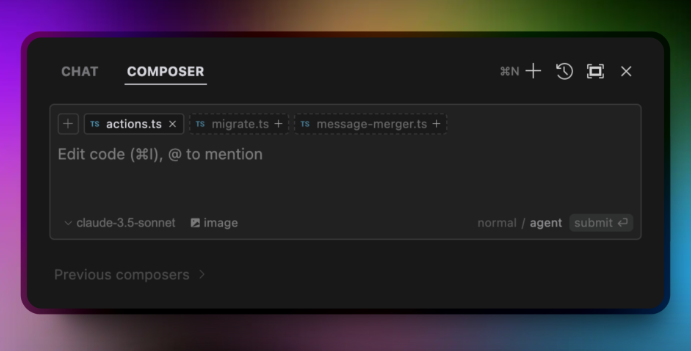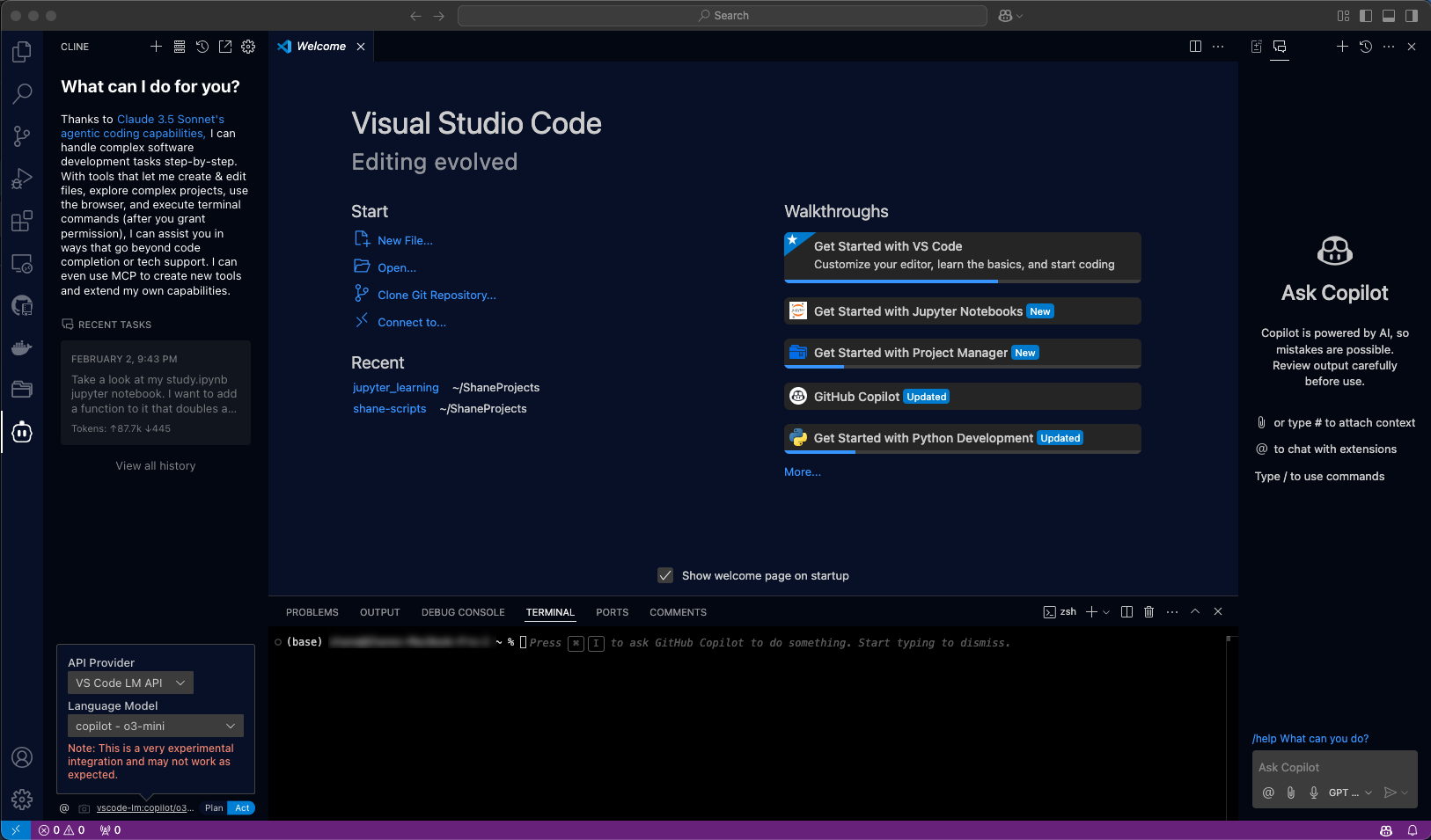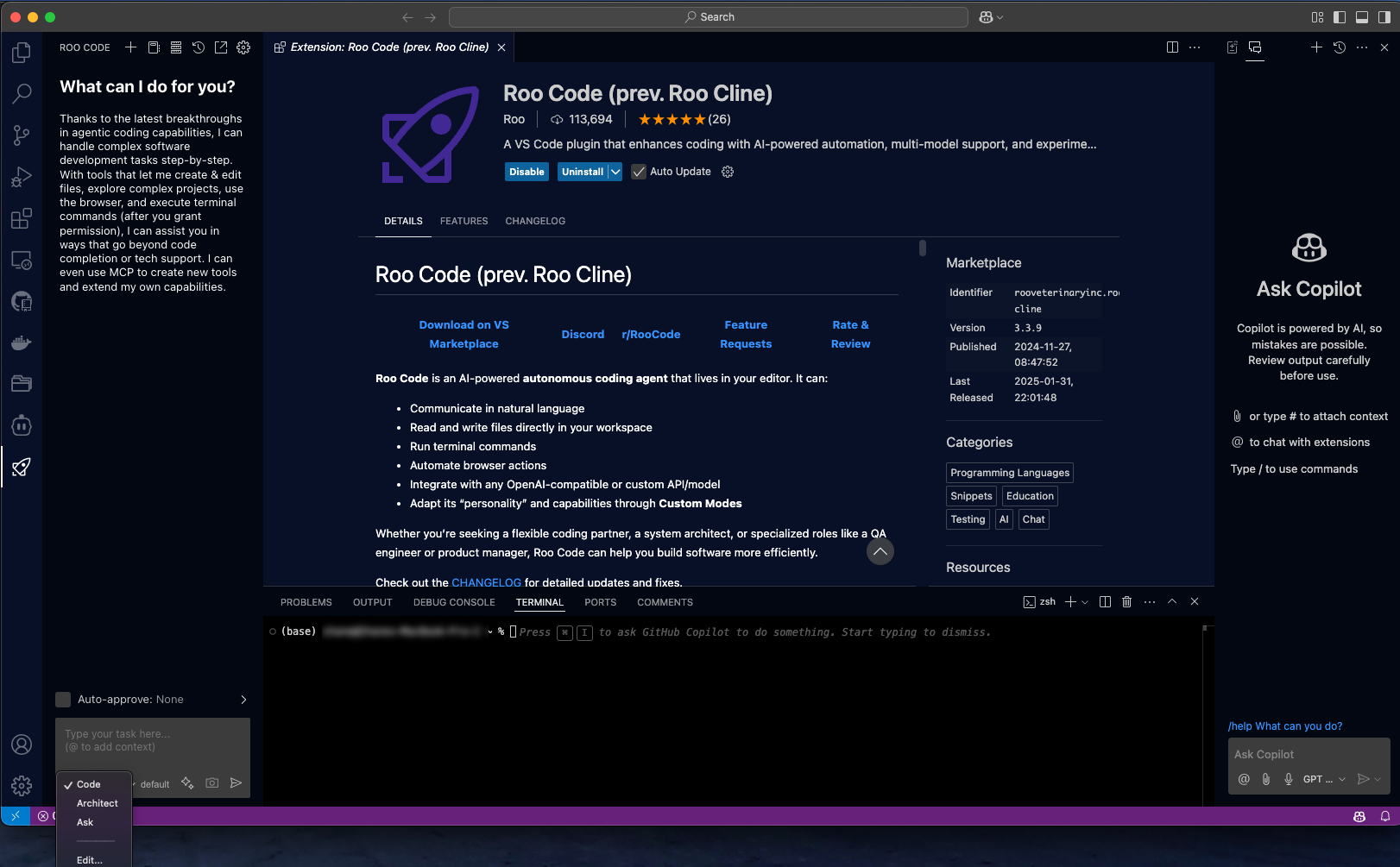
In today’s rapidly evolving software development landscape, AI agents have become indispensable. Unlike traditional AI assistants or copilots, these agents operate autonomously, fundamentally transforming how we interact with our development environments. A competitive race between paid and open-source companies is driving rapid advancements in large language models (LLMs), with each iteration enhancing their capabilities in a renaissance-like fashion. As a result, traditional methods—where projects once took months of painstaking debugging—are now being upended, with major applications completed in days. In this blog, I’ll focus on rapidly setting up some of the most widely used IDEs using AI agents, so you can quickly catch up with the latest developments from the past year.
Quick Overview: This guide explores how AI agents are revolutionizing IDEs, focusing on market leaders like Cursor AI and emerging contenders like Cline or Roo Code. We'll examine what makes an AI agent different from traditional AI assistants and why they're becoming essential for modern development.
Understanding AI Agents
AI agents represent a significant evolution beyond traditional AI assistants. Here’s what makes them special:
- Autonomous Operation:
- Design their own workflows
- Utilize available tools independently
- Make decisions without constant human input
- Complex Problem Solving:
- Break down tasks into manageable subtasks
- Plan and execute multi-step solutions
- Learn from previous interactions
- Tool Integration:
- Access external data sources
- Interact with APIs and services
- Coordinate with other AI agents

Agents vs. Traditional AI Assistants
Let’s understand what sets AI agents apart from traditional coding assistants:
Traditional AI Assistants
- Reactive responses only
- Limited to predefined tasks
- Requires constant user guidance
- No memory of past interactions
- Single-step solutions
AI Agents
- Proactive problem-solving
- Autonomous task planning
- Self-guided workflow
- Learns from past interactions
- Multi-step solution planning
Leading AI Agent IDEs
Cursor AI: The Current Market Leader
Cursor AI has emerged as the frontrunner in AI agent integration, powered by Claude 3.5 Sonnet for the COMPOSER agent, its flagship feature. Built on VSCode’s foundation, it offers:
- COMPOSER Agent:
- Autonomous code refactoring
- Multi-file changes with preview
- Context-aware suggestions
- Key Features:
- Tab Completion (Premium)
- Inline Editing
- Chat Sidebar
- Project-wide understanding
- Pricing:
- $20/month subscription model
- Predictable costs with no token limits
- Free trial available
- Other API providers available at a cost

VSCode AI Agent Ecosystem
The VSCode ecosystem offers powerful alternatives through its extension marketplace, here are the most popular:
Cline: The Versatile Agent

Cline leverages Claude 3.5 Sonnet with a focus on flexibility and deep IDE integration:
- Core Capabilities:
- Direct terminal command execution
- File creation and editing with diff views
- Browser automation for testing
- Custom tool creation via Model Context Protocol (MCP)
- Advanced Features:
- Workspace checkpoints and restoration
- Real-time error monitoring and fixing
- Automated browser testing and debugging
- API provider flexibility (OpenRouter, Anthropic, OpenAI, etc.)
- Pricing:
- Free with VS Code Language Model Integration
- Free* options through GitHub Copilot subscription
- Flexible API provider options for cost optimization
VS Code Language Model Integration: Cline leverages VS Code's Language Model API to provide access to various AI models, including GitHub Copilot's models. This integration enables:
- Access to models like gpt-4o, gpt-4o-mini, o1, o1-mini, and claude-3.5-sonnet
- Streaming-based responses for smooth user experience
- Rate-limited free access through GitHub Copilot's infrastructure
- Automatic token management and quota tracking
Model Performance Overview: Current benchmarks show distinct advantages for different models:
- DeepSeek R1: Top performer for coding tasks and price-performance ratio
- Claude 3.5 Sonnet: Fastest response times (approximately 5x faster than competitors)
- o3-mini: Competitive performance, especially for IDE integration
Using VS Code’s Language Model API
Cline’s integration with VS Code’s Language Model API opens up access to multiple AI models with built-in rate limits. Here’s how it works:
- Model Selection:
- Choose from various Copilot models (gpt-4o, o1, etc.)
- Access Claude models through Anthropic integration (fastest response times)
- Use local models via Ollama integration for DeepSeek and other open-source models
- Performance Considerations:
- DeepSeek R1: Best for complex coding tasks (requires API key or local setup)
- Claude 3.5: Optimal for rapid development cycles
- o3-mini: Good balance of performance and accessibility
- Local models: Full control and privacy via Ollama
Pro Tip: For optimal performance:
- Use Claude 3.5 when speed is crucial
- Consider local DeepSeek setup through Ollama for best coding performance
- o3-mini works well for most IDE integration tasks
- Monitor performance metrics to choose the best model for your specific needs
Roo Code: The Customizable Agent

Originally a Cline spin-off, Roo Code has evolved into a powerful autonomous coding agent with unique features:
- Custom Modes:
- Code Mode: Multi-purpose coding assistant
- Architect Mode: System design and planning
- Ask Mode: Research and documentation
- User-created custom roles and personas
- Advanced Integration:
- Native VS Code actions integration
- Browser automation capabilities
- Markdown editing support
- Intelligent mode switching
- Model Flexibility:
- Support for any OpenAI-compatible API
- Local model integration (LM Studio/Ollama)
- Custom API configurations per mode
GitHub Copilot Integration: Both Cline and Roo Code can leverage GitHub Copilot's o3-Mini model with the following plans:
- Free Tier: Basic features for code explanation and bug finding
- Individual: $10/month (free for students and open source)
- Business: $19/user/month for team collaboration
- Enterprise: $39/user/month with advanced features
Choosing Between AI Agents
Remember this is a fast moving landscape and the quality of these LLM / tool combinations can change quickly, reading on Reddit is a good way to stay up to date. But here’s a quick overview if less time to go try them all out:
Cursor AI
Best for:
- Large-scale projects
- Team environments
- Stable, production work
- Predictable pricing model
Key Advantages:
- Stable VSCode foundation
- Powerful COMPOSER agent
- Fixed monthly cost
- No token limitations
Cline
Best for:
- Flexible development workflows
- Browser automation needs
- Terminal-heavy development
- Cost-conscious teams
Key Advantages:
- Free Claude integration
- Multiple API options
- Deep IDE integration
- Workspace checkpoints
Roo Code
Best for:
- Role-specific development
- Custom workflow automation
- Documentation and architecture
- Local model integration
Key Advantages:
- Custom modes and personas
- Native VS Code actions
- Flexible model choice
- Mode-specific configurations
Cost Consideration: While Cursor AI uses a fixed subscription model, both Cline and Roo Code offer more flexible pricing through various API providers. Consider your usage patterns and team size when choosing between these options. The GitHub Copilot integration can provide additional value through its tiered pricing model.
Best Practices for AI Agent Usage
To maximize the benefits of AI agents in your development workflow:
- File Management:
- Keep files under 500 lines
- Maintain clear structure
- Use consistent naming
- Agent Interaction:
- Provide clear context
- Review suggestions carefully
- Monitor performance
- Project Organization:
- Document extensively
- Follow coding standards
- Maintain clean architecture
Future of AI Agents in IDEs
The landscape of AI agents in development is rapidly evolving:
- Integration with more powerful LLMs
- Enhanced autonomous capabilities
- Improved multi-agent collaboration
- Better performance optimization
- More sophisticated reasoning systems
Conclusion
AI agents represent the next evolution in development tools, moving beyond simple assistance to become autonomous partners in the development process. Whether you choose Cursor AI’s stability, Cline’s flexibility, or Roo Code’s customization, understanding and embracing these tools will be crucial for staying competitive in modern software development.
Remember that while these tools are powerful, they’re meant to enhance rather than replace human developers. The key is finding the right balance between leveraging AI capabilities and maintaining control over your development process.